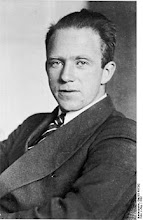A new Hollywood treatment of Sherlock Holmes is scheduled for release this Christmas, perhaps. The movie is currently “still in production”, so everything is subject to change, especially in light of what the Christmas release competition turns out to be. Movies are, after all, business, not art. This particular effort is directed by Guy Ritchie, who is a study in professional contradiction. He directed two of the finest comedy of errors criminal plot movies ever, Lock, Stock and Two Smoking Barrels and Snatch, but he was also responsible for the unwatchable Swept Away and the incoherent Revolver. In his defense, the latter two were made while he was married to that skank Madonna, which indicates he was in a period of mental decline.
The movie stars Robert Downey Jr. in the title role, with Jude Law as the faithful Dr. Watson. I have a hard time visualizing these two as the famous duo, but I will reserve judgment until I see the movie. Having enjoyed the pairing of the baritone Basil Rathbone and the obtuse Nigel Bruce in my youth, and having subsequently become completely enamored of Jeremy Brett and Edward Hardwicke in PBS’s The Adventures of Sherlock Holmes, a very high bar has been set, and Guy Ritchie, for all his intermittent talent, doesn’t inspire much faith. I will, however, inevitably be one of the first to view the movie, being a Sherlock Holmes junky in the way that I am a Star Trek junky; if someone stamped “Sherlock Holmes” on the side of a turd, I would probably buy it.
There are so many interesting themes and issues within Sherlock Holmes’ world, and, by extrapolation, the world of his creator, Sir Arthur Conan Doyle, that one scarcely knows where to begin. Holmes exists in the time of the late industrial revolution in London, the political and financial capital of the world’s most massive empire. It is the age of Faraday and Darwin and many long-standing misconceptions about the nature of things are beginning to erode under the pressure of scientific empiricism. You might say that Conan Doyle’s Sherlock Holmes is the first installment of several now popular television series; call it CSI London. Holmes uses the principles of experimentation, observation and deduction to resolve otherwise mysterious and inexplicable events and bring society’s miscreants to justice.
Sherlock Holmes is as imperfect a hero as can be imagined. He suffers bouts of severe depression which he treats with cocaine (a seven percent solution), and he is an unrepentant misogynist, repeatedly decrying the emotionalism of the female mind. In the course of his investigations, he does find a woman he considers to be his intellectual equal, but she is of a criminal bent, and thus begins an unrequited love affair that underlies a number of Holmes’ adventures. Holmes borders on autistic with his inability to appreciate the standard formalities of interpersonal discourse and is often thought to be rude by even his close associates.
On the plus side, Holmes has phenomenal powers of observation; nothing escapes his clinical gaze, and he has an organized and disciplined mind which is well suited for dispassionate, objective rationalism. He is able to put aside normal, human reactions such as fear and revulsion, and focus on observed conditions without the distortion which results from powerful emotion. Holmes presages 21st century information management techniques with his massive database of criminal and forensic records which he mines for obtuse correlations. For me, the ultimate self-indulgent analogy is to view Holmes as a 19th Century Mr. Spock; beneath his cold, logical exterior lays a commitment to all the principles of fairness, decency and protection of the weak that make us human.
Conan Doyle was a physician, like Holmes’ associate John Watson, and he spent much of his adult life campaigning for reform of the justice system and was a vocal advocate of humane policies in European colonies. His medical practices, in their various incarnations, were generally unsuccessful, which Conan Doyle credited for giving him the freedom to indulge his penchant for writing. Ironically, following the death of his second wife, Conan Doyle turned to spiritualism for solace, in contradiction to his life-long adherence to empiricism. He cultivated a brief friendship with the American illusionist Harry Houdini, but the association foundered when Conan Doyle persisted in his belief that Houdini had some supernatural power; a claim Houdini patently rejected. Perhaps the greater irony is that roughly four out of five Americans now know of Sherlock Holmes, but well less than one in five have any idea who Arthur Conan Doyle is, but maybe this is the truest form of success for an author, to be transcended by their fictional creation.
In many ways, the character of Sherlock Holmes embodies everything we like to believe modern civilization represents; rational, objective analysis, reliance on facts, progressive experimentation and research and dispassionate acceptance of established truth. Sadly, Holmes remains a flawed ideal which serves to highlight the fundamental contradictions in human nature. We are a confused tangle of the rational and the emotional, and Conan Doyle’s surrender to fantasy in the face of sadness and loss only serves to confirm Holmes’ cogent observation that “passion is the enemy of precision”.
Sunday, May 31, 2009
Subscribe to:
Post Comments (Atom)









No comments:
Post a Comment